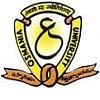MMS Syllabus and Subjects

The MMS Syllabus deal with the comprehensive study of management, economics, and maths. MMS Subjects include Principles of Management, Operations Management, Marketing Management, HR, Project Management, Entrepreneurship Management, Managerial Economics, Financial Management, and many more.
MMS syllabus helps graduates to acquire essential expertise and in-demand skills to get hired in several industries through various vocational training and skill-development tasks. Hence, the MMS job scope is substantially adequate.
Table of Contents
Semester Wise MMS Syllabus
MMS syllabus is designed so that it imparts the necessary knowledge about the fundamental concepts of management along with accounting, trade, and commerce. The course is divided into four semesters based on various management, finance, human resource, and other topics. The following is the semester-wise MMS syllabus:
First-Year MMS Syllabus
MMS 1st Sem subjects are inclined towards the foundational concepts of business administration. The First Year MMS Syllabus is given below:
|
Semester I |
Semester II |
|
Operations Management |
Marketing Management |
|
Business Statistics |
Operations Research |
|
Managerial Economics |
Financial Management |
|
Perspective Management |
Human Resource Management |
|
Effective and Management Communication |
Legal Aspects of Business and Taxation |
|
Financial Accounting |
Business Research Methods |
|
Information Technology for Management |
Analysis of Financial Statements |
|
Negotiation and Selling Skills |
Entrepreneurship Management |
Second-Year MMS Syllabus
MMS sem 4 subjects include project work based on the electives or areas of interest. The MMS subjects in the second year are given below:
|
Semester III |
Semester IV |
|
International Business |
Project Management |
|
Strategic Management |
Final Project |
|
HR |
HR |
|
Marketing |
Marketing |
|
Operations |
Operations |
MMS Subjects
MMS subjects cover the practical & theoretical knowledge of marketing, finance, operations, accounting, business statistics, economics, etc. MMS course subjects equip students with an in-depth understanding of various functionalities associated with business administration and management. Some of the MMS subjects are given below:
Core Subjects
The MMS syllabus is structured into two categories, namely core and elective subjects. Given below are the core subjects in the MMS syllabus:
- Operations Management
- Business Mathematics
- Marketing Management
- Managerial Economics
- Perspective Management
- Organizational Behaviour
- Financial Accounting
- Human Resource Management
Electives Subjects
Given below are the elective MMS subjects:
- Project Management
- Effective and Management Communication
- Business Ethics
- Organizational Behaviour
- Introduction to Creativity and Innovation Management
- Foreign Language (Other than English)
- Negotiation and Selling Skills
- IT Skills for Management and Technology Platforms
MMS Subjects in Detail
MMS course subjects are widespread in several domains dealing with finance, marketing, and human resource. A detailed view of some MMS subjects is given below:
|
MMS subjects |
Topics Covered |
|
Financial Markets and Institutions |
Indian financial system (IFS), The Role of the Central Bank – RBI, Stock Exchanges of the Country and Primary Markets, Secondary Markets, Emerging Markets, and Products |
|
Corporate Valuation and Mergers & Acquisitions |
Overview of valuation, Calculation of valuation inputs, Discounted approaches to valuation, Financial statements, leverage, get, and working capital from a valuation perspective |
|
Derivatives and Risk Management |
Forwards and Futures, Mechanics and Properties of Options, Option Trading Strategies, Risk Management, Options Volatility |
|
Database Management System & Data Warehousing |
Introduction to Databases, Data Models, Database Management System(DBMS) Basic concepts, Distributed Databases, Relational Database Management System (RDBMS) |
|
Enterprise Management Systems (EMS) |
Applications areas of an Enterprise viz. ERP, Enterprise Content Management, Enterprise Portals, Supply Chain Management(SCM), Enterprise Application Integration |
|
Human Resource Planning and Application of Technology in HR |
Human Resource Planning, Job Analysis, HR Planning and Selection in the Modern Business Environment, Workforce Diversity, Technology in Human Resources, Introduction to Analytics |
MMS Course Structure
The MMS course incorporates several components such as project work, seminars, case studies, skill development programs, industry visits, an internship, and other certification programs. The standard MMS course structure is given below:
- IV Semesters
- Core and Elective subjects
- Projects/Assignments/ Viva
MMS Teaching Methodology and Techniques
The MMS Degree course curriculum includes various teaching methods that help students understand the course outcome pragmatically, implementing several assessments, viva, group discussion, class participation, etc. Some of the different learning methodologies adopted in the MMS course are as follows:
- Case Studies
- The emphasis on Practical and Theoretical Learning
- Guest Lectures, Seminars, and Conferences
- Group Assignment and Discussion
- Presentations and Modules
MMS Projects
Project Topics under the MMS syllabus is a fantastic opportunity to demonstrate their learning through real word application. Students can choose the subject matter from economics, marketing, finance, operation, and statistics. Some of the best project topics for the MMS Course are provided below:
- Debtor management
- Agile Project Management
- Resource Management
- Stakeholder Management
- The Role of Forecasting and Planning in Business Organization
- Change Management
- The Problem of Unemployment and Solving it Through Small and Medium-Scale Businesses
MMS Reference Books
The reference books in the MMS syllabus help students to understand various subjects and topics covered in the course curriculum and allow graduates to expand their knowledge and vision. Some of the very best books for the MMS course are given below:
|
Books |
Authors |
|
Business Communication For Managers |
Payal Mehra |
| The Management of Innovation |
Tom Burns |
|
The Effective Executive |
Peter Drucker |
|
Strategy and Structure: Chapters in the History of the Industrial Enterprise |
Alfred D. Chandler Jr. |
|
People's History of India |
Irfan Habib |
Top MMS [Master Management Studies] Colleges
Top Management Entrance Exams
MMS Fee Structure
FAQs on MMS Syllabus and Subjects
Q: What is the 1st year syllabus of MMS?
Q: What are the core subjects of MMS?
Q: What are the elective subjects in MMS?
Q: What are the MMS projects?
Q: What are the important books for MMS?
























